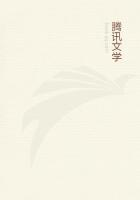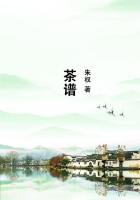That, indeed, was the peculiar virtue and characteristic of the BLUEWEEKLY.I was now very definitely convinced that much of the confusion and futility of contemporary thought was due to the general need of metaphysical training....The great mass of people--and not simply common people, but people active and influential in intellectual things--are still quite untrained in the methods of thought and absolutely innocent of any criticism of method; it is scarcely a caricature to call their thinking a crazy patchwork, discontinuous and chaotic.They arrive at conclusions by a kind of accident, and do not suspect any other way may be found to their attainment.A stage above this general condition stands that minority of people who have at some time or other discovered general terms and a certain use for generalisations.They are--to fall back on the ancient technicality--Realists of a crude sort.When I say Realist of course I mean Realist as opposed to Nominalist, and not Realist in the almost diametrically different sense of opposition to Idealist.Such are the Baileys; such, to take their great prototype, was Herbert Spencer (who couldn't read Kant); such are whole regiments of prominent and entirely self-satisfied contemporaries.They go through queer little processes of definition and generalisation and deduction with the completest belief in the validity of the intellectual instrument they are using.They are Realists--Cocksurists--in matter of fact;sentimentalists in behaviour.The Baileys having got to this glorious stage in mental development--it is glorious because it has no doubts--were always talking about training "Experts" to apply the same ****** process to all the affairs of mankind.Well, Realism isn't the last word of human wisdom.Modest-minded people, doubtful people, subtle people, and the like--the kind of people William James writes of as "tough-minded," go on beyond this methodical happiness, and are forever after critical of premises and terms.
They are truer--and less confident.They have reached scepticism and the artistic method.They have emerged into the new Nominalism.
Both Isabel and I believe firmly that these differences of intellectual method matter profoundly in the affairs of mankind, that the collective mind of this intricate complex modern state can only function properly upon neo-Nominalist lines.This has always been her side of our mental co-operation rather than mine.Her mind has the light movement that goes so often with natural mental power;she has a wonderful art in illustration, and, as the reader probably knows already, she writes of metaphysical matters with a rare charm and vividness.So far there has been no collection of her papers published, but they are to be found not only in the BLUE WEEKLYcolumns but scattered about the monthlies; many people must be familiar with her style.It was an intention we did much to realise before our private downfall, that we would use the BLUE WEEKLY to maintain a stream of suggestion against crude thinking, and at last scarcely a week passed but some popular distinction, some large imposing generalisation, was touched to flaccidity by her pen or mine....
I was at great pains to give my philosophical, political, and social matter the best literary and critical backing we could get in London.I hunted sedulously for good descriptive writing and good criticism; I was indefatigable in my readiness to hear and consider, if not to accept advice; I watched every corner of the paper, and had a dozen men alert to get me special matter of the sort that draws in the unattached reader.The chief danger on the literary side of a weekly is that it should fall into the hands of some particular school, and this I watched for closely.It seems impossible to get vividness of apprehension and breadth of view together in the same critic.So it falls to the wise editor to secure the first and impose the second.Directly I detected the shrill partisan note in our criticism, the attempt to puff a poor thing because it was "in the right direction," or damn a vigorous piece of work because it wasn't, I tackled the man and had it out with him.Our pay was good enough for that to matter a good deal....
Our distinctive little blue and white poster kept up its neat persistent appeal to the public eye, and before 1911 was out, the BLUE WEEKLY was printing twenty pages of publishers' advertisements, and went into all the clubs in London and three-quarters of the country houses where week-end parties gather together.Its sale by newsagents and bookstalls grew steadily.One got more and more the reassuring sense of being discussed, and influencing discussion.
5
Our office was at the very top of a big building near the end of Adelphi Terrace; the main window beside my desk, a big undivided window of plate glass, looked out upon Cleopatra's Needle, the corner of the Hotel Cecil, the fine arches of Waterloo Bridge, and the long sweep of south bank with its shot towers and chimneys, past Bankside to the dimly seen piers of the great bridge below the Tower.The dome of St.Paul's just floated into view on the left against the hotel facade.By night and day, in every light and atmosphere, it was a beautiful and various view, alive as a throbbing heart; a perpetual flow of traffic ploughed and splashed the streaming silver of the river, and by night the shapes of things became velvet black and grey, and the water a shining mirror of steel, wearing coruscating gems of light.In the foreground the Embankment trams sailed glowing by, across the water advertisements flashed and flickered, trains went and came and a rolling drift of smoke reflected unseen fires.By day that spectacle was sometimes a marvel of shining wet and wind-cleared atmosphere, sometimes a mystery of drifting fog, sometimes a miracle of crowded details, minutely fine.
As I think of that view, so variously spacious in effect, I am back there, and this sunlit paper might be lamp-lit and lying on my old desk.I see it all again, feel it all again.In the foreground is a green shaded lamp and crumpled galley slips and paged proofs and letters, two or three papers in manuscript, and so forth.In the shadows are chairs and another table bearing papers and books, a rotating bookcase dimly seen, a long window seat black in the darkness, and then the cool unbroken spectacle of the window.How often I would watch some tram-car, some string of barges go from me slowly out of sight.The people were black animalculae by day, clustering, collecting, dispersing, by night, they were phantom face-specks coming, vanishing, stirring obscurely between light and shade.
I recall many hours at my desk in that room before the crisis came, hours full of the peculiar happiness of effective strenuous work.
Once some piece of writing went on, holding me intent and forgetful of time until I looked up from the warm circle of my electric lamp to see the eastward sky above the pale silhouette of the Tower Bridge, flushed and banded brightly with the dawn.

